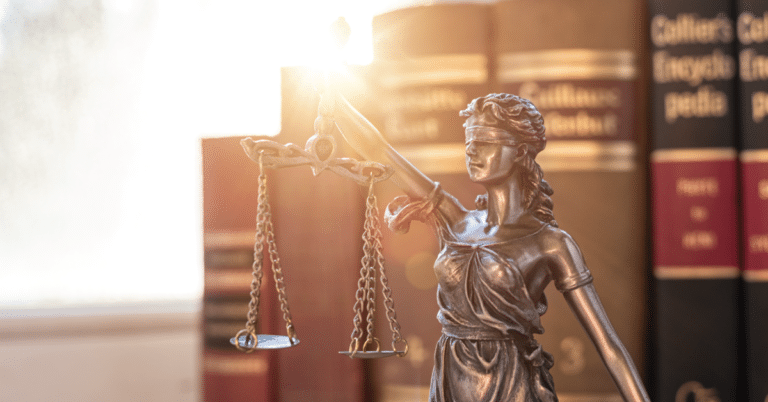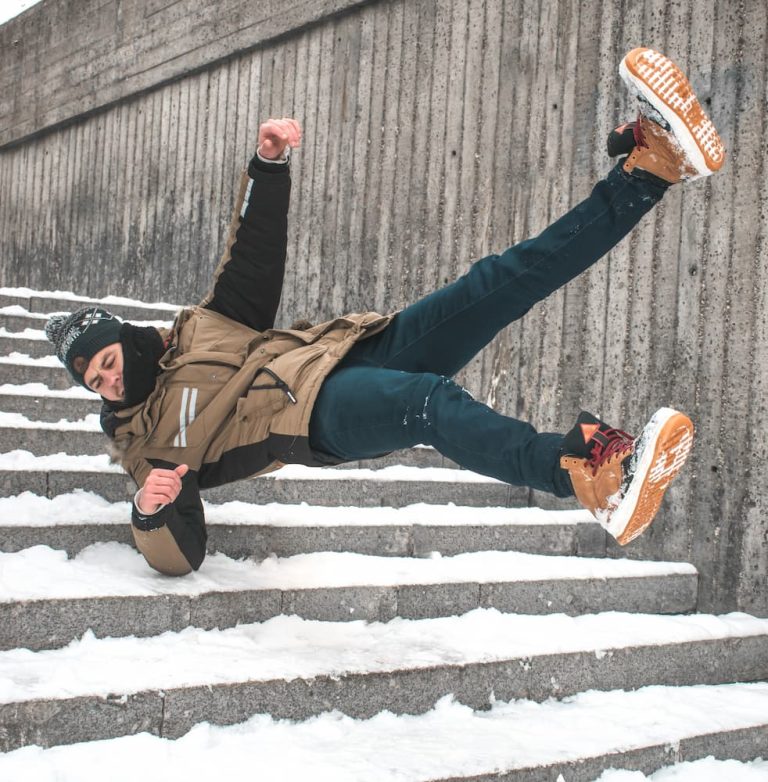Every year, countless Coloradans look forward to the fun that snow brings. But after months of it, even the most winter-loving people start to grow tired of constantly clearing their sidewalks and driveways. After a while, it can be tempting to let nature run its course. Unfortunately, the sun is not legally responsible for snow removal in Colorado—you are.
Following a snowstorm, every property owner is responsible for removing snow from the sidewalks adjacent to their property, including the portion of their driveway where pedestrians cross. Those who don’t keep these areas clear can face legal consequences if the snow on their property causes someone to slip and injure themselves.
Here, we’ll cover Colorado’s snow removal requirements to help you avoid a mistake that could make you liable for someone else’s injury:
- Why Are Property Owners Responsible for Snow Removal?
- How To Avoid Liability for Snow-Removal-Related Injuries
- Hazards Caused by Improper Snow Removal
- Regulations and Timeframe Requirements for Snow Removal in Colorado
- Colorado Snow Removal Laws Regarding Liability
Why Are Property Owners Responsible for Snow Removal?
Snow removal in Colorado is necessary for the safety of residents, tenants, customers, mail carriers, and any other member of the public using pedestrian walkways. This is especially important for children and handicapped members of our communities. A snowy, icy, or inaccessible walkway can be dangerous for pedestrians to navigate and may even force them to walk onto a roadway used by motorists, which is never safe.
Additionally, failing to do regular snow removal can make property owners liable for injuries under the Colorado Premises Liability Act. This act allows people who are on a property and not trespassing to hold the owners liable for any injuries caused by subpar property maintenance. Put simply, if you do not clear your sidewalks and someone slips and breaks their arm, you can be held liable for their medical expenses.
How To Avoid Liability for Snow-Removal-Related Injuries
It’s fairly easy to avoid a scenario where you can get sued for snow removal in Colorado. Here are some of Colorado’s snow removal laws that you must follow to avoid liability for someone’s injuries:
- Residents are responsible for clearing driveways and sidewalks within 24 hours after a snowstorm to allow safe use by pedestrians. This is particularly important along school pedestrian routes to prevent children from having to walk in the street.
- Owners must place snow from their driveways and sidewalks onto their front yard or other areas of their own property, and not into the street. C.R.S. 43-5-301 prohibits the plowing, blowing, shoveling, or other placement of snow onto public roadways. This practice reduces the number of icy areas on streets and ensures proper drainage flow into the storm sewer once the snow melts.
- If you cannot remove the snow yourself, you must make the necessary arrangements to have the snow removed from your property. This applies to residential homeowners, commercial property owners, and landlords.
Hazards Caused by Improper Snow Removal
Violations are considered misdemeanors, but civil penalties also apply if the placement of snow creates a hazard. Some examples of hazards caused by snow are:
- Slippery areas
- Frozen ruts or bumps that can contribute to a motor vehicle or pedestrian crash
- Drainage issues
- Obstructing ease of access
Regulations and Timeframe Requirements for Snow Removal in Colorado
It is important to note that each city and county may have different regulations regarding their snow removal policies, so be sure to check with your municipality regarding the local rules and regulations.
Here are some of the regulations from a few of the major cities in Colorado:
Colorado Springs
For residential property, snow must be cleared twenty-four (24) hours after snowfall ends. For commercial property, snow removal must be completed by five o’clock (5:00) P.M. the next business day after any snowfall.
Denver
Businesses need to begin clearing their sidewalks immediately after snowfall stops. Residences need to clear their sidewalks by the next day.
Aurora
Residential property and business owners must remove snow and ice within 24 hours after snowfall ends. If a snow emergency is declared by the city, they have 48 hours to clear the sidewalks.
Colorado Snow Removal Laws Regarding Liability
In Colorado, snow removal laws that impact liability also vary from city to city. Here are a few of the laws in various cities, plus one law that affects everyone in the state:
Colorado Premises Liability Act
The Colorado Premises Liability Act is a law stating that a homeowner or business owner could be found liable if a person is injured on their property due to the lack of proper snow removal. The act applies when someone is injured on another person’s property because of that property owner’s negligence.
Colorado Springs
Per Colorado Springs Code of Ordinances 3.4.202, “This section imposes an affirmative duty to remove snow and ice from the sidewalks to protect public safety. Violation of this duty shall constitute negligence per se and an unlawful act, subjecting the violator to civil liability for any injury proximately caused by the violation, civil liability for the costs of removal and criminal prosecution.”
Denver
The City of Denver states that, “Inspectors leave a time-stamped notice at properties with un-shoveled sidewalks. After receiving a notice, businesses have four hours and residences have 24 hours before the inspector’s re-check and a potential $150 fine.”
Aurora
Per the City of Aurora, “An administrative fee of $25 for single-family and $50 for all others will be imposed after 24 hours and again after 48 hours if the snow is not removed. The city’s contractor will then be requested to remove the snow and/or ice, and the property owner or financial institution will be billed. Chronic violators will also be issued a summons to appear in Aurora Municipal Court. Officers are not required to give a warning notice prior to issuing a snow ticket.”
What To Do if You Are Injured Due to the Lack of Snow Removal
If you are injured due to the lack of snow removal, you should immediately inform the property owner of the situation and give them notice that you have been injured on their property. The next step to take would be to seek adequate treatment for any injuries suffered.
If your injuries are severe and require legal action, contact the attorneys at McDivitt Law Firm. We will hold property owners accountable for their negligence and get you the money you deserve.
Schedule a free consultation with a premises liability attorney today!


